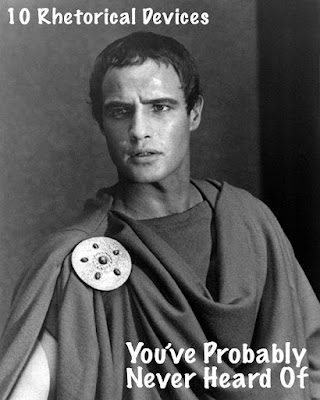6 Questions with Shakespearean Actor Patrick Harvey
The GEB took some time to chat with Shakespearean actor Patrick Harvey (Instagram and Twitter: @dfwpadraig) and get the inside scoop on acting Shakespeare professionally during a pandemic.
GEB: Tell the readers a little bit about yourself and your interactions with Shakespeare.
PH: Hi! I'm Patrick. I'm an actor, voiceover artist, and word nerd, originally from Seattle, Washington, and currently based in New York City, where I live with my fiancee Amara and our two cats, Missy Elliott and Maggie. I'm a theatre kid at heart, and continue to find myself drawn back to working on Shakespeare's work. In New York, I've worked for a long time with an incredible Shakespeare company called Smith Street Stage playing some of Shakespeare's most enigmatic and challenging roles, including Feste in 'Twelfth Night,' Caliban in 'The Tempest,' the Porter in 'Macbeth,' and Puck in 'A Midsummer Night's Dream.' This summer, I'm excited to be returning to the stage after the COVID-19 pandemic's forced hiatus on live performances, playing Bottom the Weaver in 'A Midsummer Night's Dream' as part of the Connecticut Shakespeare Festival's inaugural season. This especially means a lot to me as Bottom was the first Shakespeare role I played when I was sixteen!
GEB: When you are cast in a Shakespearean role, how do you approach finding the character?
PH: I try to put in as much work as I can before the first rehearsal. I start by getting as familiar as I can with the play. This means starting with an out-loud reading of every word of the text. Since Shakespeare's plays were written to be spoken and heard, and not merely read, hearing it out loud especially helps me learn the rhythmic changes of the piece: where does the writer use more complex phrases that require the actor to accentuate every sound, and force the listener to really pay attention? What in particular does he want us to pay attention to in this scene? This also helps me begin to learn the dynamics of certain characters' relationships, and how their terms of address change based on who they're talking to. For instance, does a character address someone using 'you' or 'thou?' Do they speak using more staccato monosyllabic words or more legato polysyllables that can paint a more poetic picture? Now I come to think of it, learning the play feels to me like learning a new musical score!
Then, once I've read the play out loud.... I'll usually read it again! This time though, I'm looking for any clues I can glean about my character, based on how other characters speak to or describe them. These can be direct addresses (eg. 'bully Bottom,' 'good Robin,' 'honest Iago,') or expositional details delivered between other characters (eg. 'a noble duke, in nature as in name,' 'O she doth teach the torches to burn bright'). These are really good indicators to me of how my character fits into the world of the play. They're clues as to how I might approach interacting with my scene partners, and possible directions I might take for the character's larger motivation.
Another trick I like to do at this stage is to paste all of the character's lines into a word processing document and count which words appear the most to get an idea of my character's relationship to their words. This might be a bit 'Inside Baseball,' but this is one of the most revealing elements of a character's psychology (something the Elizabethans never fussed with, but it helps me!). For example, Bottom, in 'Midsummer,' refers to himself 75 times: he literally says 'I' nearly four times as much as 'you.' What does this indicate to me? Well, he could be very vain and self-centered, or he could be very self-conscious! He uses odd terms to address his familiars like 'monsieur' and 'master,' could he be just as self-conscious about his station as an artisan laborer as he is proud of his abilities as an actor? I try not to set anything in stone, just call attention to certain patterns in the text that indicate what's happening to make a character act the way he does.
The last and perhaps most important step I take before rehearsals even begin is to speak the whole role out. While I usually aim to get as close to off-book as possible, I always have to remind myself that falling into rhythms or line readings is death for an actor, because a staid line reading, even a perfectly crafted bit of hilarity that kills in front of your bathroom mirror, will never be as interesting as an authentic response to the circumstances of the scene and a reaction to the information you're receiving from your scene partners.
The last thing I do before rehearsals begin is frantically watch as much of John Barton's 'Playing Shakespeare' series as I can, just in case there's something I overlooked. (There always is.) I get a kick out of reading his companion book along with the series, but the whole thing is also available to watch on YouTube!
GEB: What’s the most useful piece of advice or direction you’ve been given as a Shakespearean actor?
PH: I was lucky enough to work on nothing but Shakespeare for a while at the Royal Academy of Dramatic Art in London before starting out as a professional actor. One of the best pieces of advice I received was from a wonderful teacher named Gregory de Polnay, who liked to pass on what he called his 'pearls of wisdom.' The one that's always stuck with me has to do with the structure of iambic pentameter: Do not become enslaved to it, do not revere it, and ignore it at your peril. He was very arch with his notes, and would always deliver that last part with a bit of a growl to really drive it home.
GEB: What’s the biggest mistake a Shakespearean actor can make?
PH: I'm probably the best person to answer this because I've probably made all of them. I think failure is the best teacher for a performer. As any good stand-up comic will tell you, you're going to bomb your first set; but if you're lucky you'll learn a lesson that'll help you not bomb your second... or at least not as badly. So to flip the script on the question, I'd start by encouraging actors to seek failure and embrace your sense of play. I have to continually remind myself of this: the biggest mistake you can make is to go out onstage and try to impress everyone. Just focus on being a better actor than you were yesterday - focus on your craft, work on your voice, work on your body, read good plays and screenplays, stay present in performance, all that stuff they teach you at drama school. I think that even when someone is watching a good Shakespearean actor at work, they don't want 'a good performance,' they want to feel connected to the story and to forget that they know what's coming next. Think about 'Romeo and Juliet.' At the top of the play, the Chorus comes out and says 'these two teens are in for it,' and yet by the final scene of the play you're in the audience just praying that Juliet is going to wake up before Romeo takes the poison! Talk about a gut-punch!
GEB: How does acting during COVID feel different from acting under regular circumstances? Are any of these differences specific to Shakespeare?
PH: It helps a lot to know in advance that we're going to be performing outdoors for a distanced audience, and that we're going to be miked for sound. That helps a lot in terms of preparation and knowing what kind of physical endurance I'm going to need to play Shakespeare. His plays are written to be spoken with muscularity and speed, so part of the readiness is implementing that physical alacrity with the nuance and intimacy a microphoned space (even a vast one with a distanced audience) will provide.
GEB: What would you say to a theatergoer who was hesitant to attend a live performance?
PH: Man, I get it. For the first few months of my quarantine in New York, I relished the privilege of being able to withdraw from the company of other people and hibernate with my family and my Netflix queue. But it wasn't too long before I began to ache for the camaraderie and joy of working with other actors and putting in the time-honored work of putting on a show, from rehearsing and building sets and marketing to intermission concessions and thank yous at the stage door. All of that work depends on live, in-person, flesh and blood energy. You can't do it any other way, and Zoom theatre just ain't gonna cut it anymore. And this is why the theatre industry has been one of the hardest hit by this pandemic.
To all reticent theatergoers, the reason I think you should come out and see our show in particular is that it's going to be performed in the open air, which quite apart from being the best way to enjoy Shakespeare in the summertime, is one of the safest places to be in public. If you show up masked with your family and are willing to look after each other in the house, I promise we'll strive to please you every day.
 |
Shakespearean actor Patrick Harvey |



Comments
Post a Comment
All comments are moderated by the Green-Eyed Blogger to avoid spam. If you do not see your comment right away, do not worry; it is simply undergoing our routine moderation process.